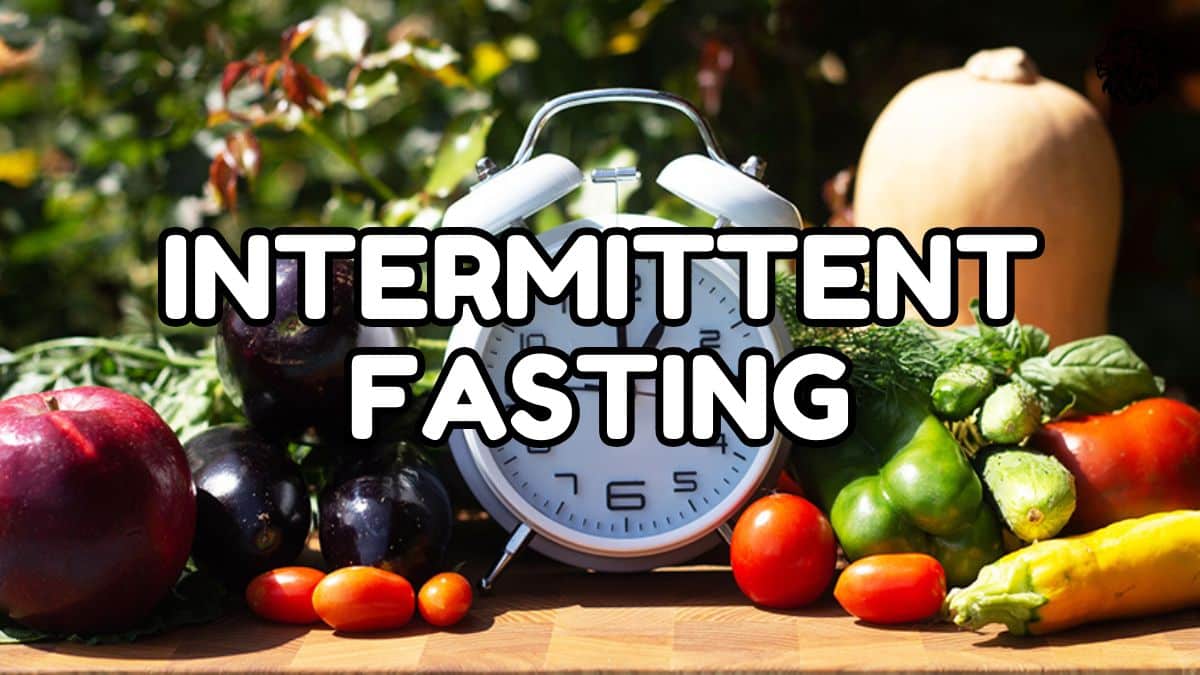Intermittent Fasting Explained
Understanding Intermittent Fasting
Okay, so here’s the scoop on intermittent fasting (IF): it’s all about when you chow down, not necessarily what you gobble up. You choose the style that works for you, like the 24-hour intermittent fasting or the classic 16/8 gig, where your munching happens during an 8-hour stretch and you’re making friends with fasting for the next 16 hours.
This way of eating? It’s ancient! Back in the day, before drive-thrus and takeout, folks hunted and gathered, sometimes going yawn-inducing hours without a snack. Fun fact: our bodies are apparently cool with this fasting business, having been at it since the stone age, according to Johns Hopkins Medicine.
Benefits of Intermittent Fasting
Fasting isn’t just about channeling your inner caveman; it’s packed with perks too. Whether you’re eyeing that summer bod or just trying to keep your ticker ticking, here’s what’s in it for you:
Weight Loss and Fat Loss
Need to lose that stubborn layer? IF might just be your ticket. By sneaking your meals into a smaller window, you naturally cut back on calories. Easy peasy math, right? Less time eating usually means less eating, and that can lead to weight loss magic. The good folks at Mayo Clinic say fasting is as good as any traditional diet, and they know their stuff.
Improved Insulin Sensitivity and Blood Sugar Levels
Tuning your body’s sugar levels is kinda important, especially if you’ve got concerns about diabetes knocking on your door. Fasting gives your system time off from constant snacking, letting your body handle insulin and sugar like a pro. Win-win for managing blood sugar and boosting the ol’ metabolism.
Reduced Inflammation
Let’s talk about body flare-ups – nobody likes ’em. IF is like a firefighter for inflammation-related issues such as arthritis or asthma. According to Mayo Clinic, getting your fast on might just calm those fires better than a typical food plan.
Lowered Blood Pressure and Improved Heart Health
High blood pressure giving you the blues? Well, IF might be your knight in shining armor. A Healthline write-up suggests fasting helps ditch those pesky triglycerides and LDL (that’s your bad cholesterol) numbers, keeping your heart happier and healthier.
Less Stress and Better Brain Health
Juggling life, work, and responsibilities adding wrinkles to your forehead? IF might be mood music for your brain, potentially lowering stress and amping up brainpower. By helping your body take out the trash — or damaged cells — IF can boost brain vibes and possibly fend off some gnarly brain diseases too.
| Benefit | Source |
|---|---|
| Weight loss and fat loss | Mayo Clinic |
| Improved insulin sensitivity and blood sugar | Healthline |
| Reduced Inflammation | Mayo Clinic |
| Lowered blood pressure and heart health | Healthline |
| Less stress and better brain health | Harvard Health Publishing, Healthline |
Don’t just look at IF as just a way to eat fewer donuts; it’s about embracing a healthier lifestyle. Curious to give it a shot? Check out our intermittent fasting guide for newbies to make the plunge nice and smooth.
Risks and Side Effects
Before jumping into the intermittent fasting groove, it’s good to have a heads-up about what might come your way. Sure, this food dance can do wonders, but you also need to know the other side of the coin.
Potential Side Effects of Intermittent Fasting
Getting the hang of intermittent fasting might leave you feeling a bit out of sorts, but hang in there – most annoyances vanish in a month. You could feel queasy, worn out, or as grumpy as a cat in water (Mayo Clinic). Here’s the scoop on what you might face:
- Headaches: These might tag along due to dehydration or a nosedive in blood sugar.
- Lack of Energy: Cutting back on calories could make you want to nap all day.
- Moodiness: Hunger can turn you into a cranky pants.
- Constipation: Your tummy might take some time adjusting to the new schedule.
- Dragon Breath: Not the fire-breathing kind, but an unfortunate consequence of fasting (Healthline).
Side Effects Table
| Side Effect | Cause |
|---|---|
| Headaches | Dehydration, low blood sugar |
| Lack of Energy | Fewer calories |
| Moodiness | Hunger blues |
| Constipation | Digestion adjustments |
| Dragon Breath | Fat burn releases acetone |
Want to know how to dodge these roadblocks? Check out our article on intermittent fasting side effects.
Health Risks of Intermittent Fasting
While side effects can be ironed out, don’t brush off the risks that tiptoe in, especially if you’re on meds or dealing with health quirks.
- Medication Mix-ups: If you’re taking meds for stuff like diabetes or heart issues, skipping meals could mess with your mojo, causing mineral imbalances (Harvard Health Publishing).
- Wonky Electrolytes: Going without food can stir up trouble with minerals you need to function.
- Missing Nutrients: Squeezing all your eats into a small window might leave you lacking in the nutrition department.
- Eating Woes: Fasting could mess with your mind and eating habits, especially for intermittent fasting for women, who might be more at risk.
Chat with your doc before diving into intermittent fasting, especially if you’re already dealing with health stuff or on meds. For more scoop on fasting safely, check our safe implementation tips.
Knowing what you’re up against helps you tweak fasting to fit your health groove. Hop over to our articles on intermittent fasting schedule and intermittent fasting results for more 4-1-1.
Who Should Think Twice
Intermittent fasting can work wonders for some folks, but let’s face it, it’s not everyone’s cup of tea. Here’s what you should know if you’re wondering whether this eating style suits your life or not.
Warning Signs for Certain Folks
Some people need to be extra careful with intermittent fasting due to health concerns or particular life stages. According to the Mayo Clinic, it might not be a great fit if you’re:
- Pregnant or breastfeeding
- Dealing with issues like kidney stones or heartburn
- Handling chronic conditions such as diabetes or heart disease
Intermittent fasting could mess with you, especially if you’re on meds for these health issues. You might end up with wonky mineral levels, which can be trouble (Harvard Health Publishing). Folks with diabetes might face low blood sugar, which can get serious and lead to scary stuff like seizures (Emily Program).
Attention, Certain People!
For some, specific tweaks and precautions are a must:
1. Pregnant and Nursing Moms:
You should zero in on balanced meals instead of skipping them. Intermittent fasting might throw off your nutrients and milk supply, crucial for your baby’s growth and nursing needs.
2. Those Popping Pills:
Taking meds for stuff like diabetes, high blood pressure, or heart problems? Intermittent fasting might mess with your meds’ mojo. Emily Program points out how body changes like glucose swings could interfere with how well your medications work.
3. Folks with Long-term Health Issues:
Kidney stones or bad heartburn mean fasting isn’t your buddy. Going without meals could make your symptoms worse (Mayo Clinic).
4. People with Eating Disorders:
If you have a past of eating disorders, steer clear of intermittent fasting. It might rev up unhealthy eating habits and mess with your recovery, putting too much focus on food and body image (Emily Program).
Wanna give fasting a go safely? Check out safe practices tailored to your needs. Chatting with your doctor is crucial to see if fasting gels well with your health story. For more juicy bits on how to juggle your fasting efforts, peek at our intermittent fasting schedule and intermittent fasting meal plan advice.
It’s about knowing if this fasting dance fits you or not. Remember, your health always comes first when considering any diet plan.
Making Intermittent Fasting Safer
Intermittent fasting is like that trendy diet plan that might give you the vibe of a health guru. You get potential perks like weight loss, but it’s not all sunshine and rainbows. To play it safe and keep it healthy, try these tips and tweak your routine to suit your body.
Safe Implementation Tips
- Go Easy, Kid: Don’t rush into it. Shrink your munching window bit by bit over weeks or even months. Your body needs some time to say, “Hey, I’m cool with this,” without going haywire in the blood sugar department or causing a rumble fest down in digestion city.
- Chug That H2O: Water is your new best friend. Guzzle plenty throughout the day. It keeps you peppy and clears out those pesky headaches or dizziness vibes.
- Feed Me Right: When it’s chow time, be smart with your plate. Get a good mix of proteins, carbs, and those tasty healthy fats. It keeps hunger monsters at bay and powers you up.
- Body Talk: Listen to the signals. Feel like you’re about to fall over or moodier than a toddler denied candy? You might need to rethink things or chat with someone who knows a thing or two about health.
| Safe Implementation Tips | Description |
|---|---|
| Go Easy, Kid | Take it slow with reducing your eating window. |
| Chug That H2O | Keep sipping water all day long. |
| Feed Me Right | Balance your meals during eating windows. |
| Body Talk | Be mindful of how your body feels. |
Want the deets on planning your fasting times? Check out our intermittent fasting schedule guide.
Adjusting for Your Health Needs
- Doctor’s Orders: Got meds or medical stuff going on? Give your doctor the lowdown before you jump into fasting, mainly if diabetes, kidney issues, or reflux are part of your gig.
- Personalize It: Everyone’s got their own groove. What works for your BFF might not rock your boat. Tweak your fasting plan to match your health vibes.
- Med Check: Fasting might mess with your meds, especially if you’re juggling diabetes, BP, or heart meds. Sync up your fasting with your pill schedule to keep things in harmony (Harvard Health Publishing).
- Wise Choices: Think about adding some intermittent fasting supplements so you’re not running low on the good stuff like vitamins or minerals. Keep that bodily balance in check!
| Health Needs Adjustment | Description |
|---|---|
| Doctor’s Orders | Chat with a health pro first. |
| Personalize It | Make the plan your own. |
| Med Check | Keep meds and fasting in sync. |
| Wise Choices | Use supplements to stay balanced. |
Want to know how fasting and exercise mix? Swing by our page on intermittent fasting and exercise.
Stick to these guidelines, tweak your fasting to fit your health story, and you can sidestep those intermittent fasting risks while reaping the benefits—all without a hitch.
Long-Term Considerations
Effects on Weight Over Time
Looking at that big picture of intermittent fasting and weight changes, people can experience different results. It ain’t a one-size-fits-all! Some studies, like those from Emily Program, suggest that folks following intermittent fasting don’t shed more pounds than those eating the regular way. We need more serious research—think large studies stretched over time—to really peg down if fasting is the long-haul solution for weight loss.
Some smarty-pants at Johns Hopkins Medicine say that picking those fasting techniques, like the 16/8 method (chow down for eight hours, don’t nosh for 16), or the 5:2 routine (feasting for five days, cutting calories real low for two), ain’t a surefire way to stop weight creeping back on or zapping fat for good.
Here’s a little cheat-sheet on how different fasting styles stack up on weight management:
| Fasting Method | Initial Weight Loss | Long-Term Weight Maintenance |
|---|---|---|
| 16/8 Method | Moderate | Hit-or-Miss |
| 5:2 Method | Moderate | Hit-or-Miss |
| Consistent Eating Pattern | Moderate | Hit-or-Miss |
If you’re curious how to bring fasting into your daily groove safely, check out our handy-dandy guide on intermittent fasting methods.
Sustainability and Long-Term Health
Thinking of fasting as a forever plan for staying healthy? It’s got some moving parts. Going too long without food—like whole-day type fasts—might not just be tough to stick to, but they could also trick your body into hanging on to fat ‘cause it thinks it’s starving (Johns Hopkins Medicine).
Here’s what you can do to keep fasting safe and sound:
- Take it Easy: Shrink your eating window bit by bit over months. Your body will ease into it, lowering chances of any freak-outs (Harvard Health Publishing).
- Phone a Friend (or Pro): Chat with your doc about your fasting game plan. They can share tips tailored just for you to skip any pitfalls.
- Eat Right: During your eating times, munch on balanced, nutritious meals to keep your batteries charged and your health in-check.
For more nuggets on fasting without a hitch, peek at our article on intermittent fasting tips.
If you’re thinking of fasting to lose weight, it’s wise to ponder its ripple effects down the line. Keep yourself in the loop, and scope out the intermittent fasting side effects to make a smart call that fits your health vibe.
Disordered Eating Concerns
Impact on Eating Behaviors
Intermittent fasting might seem like the latest health trend, but it can mess with how you eat. Restricting meal times can make you ignore when your body says it’s hungry. Ignoring those hunger cues isn’t just a bad habit; it falls under disordered eating patterns (Emily Program). This can really throw a wrench in having a healthy mindset about food, leading to possibly damaging ways of eating.
A study rang alarm bells with stats showing that 47.7% of women and 38.4% of men who tried intermittent fasting in the last year were linked to eating behaviors that screamed trouble (NCBI). If you’re curious about what an intermittent fasting schedule looks like, swing by our intermittent fasting schedule page and get the lowdown.
Risks for Developing Disordered Eating
Playing around with intermittent fasting can either spotlight or mask those unhealthy eating habits associated with eating disorders, throw recovery off course, and even jack up the chances of serious disorders (Emily Program). You’ve got to be careful, especially if you’ve wrestled with disordered eating in the past or think you might be prone to it.
Research by Colombarolli et al. indicates there’s more to worry about when mixing low-carb diets with intermittent fasting. This combo seemed to nudge people toward binge eating and irresistible cravings (NCBI). Knowing these risks inside out is part of making the right call for your health. For a broader take on the good, the bad, and the ugly of fasting, head over to our intermittent fasting side effects page.
Have a peek at the table below showing who’s joining the fasting bandwagon and their risk of falling into disordered eating:
| Group | Percentage Engaging in Intermittent Fasting | Associated Risk of Disordered Eating |
|---|---|---|
| Women | 47.7% | Higher |
| Men | 38.4% | Higher |
| Transgender and Gender Non-Conforming Folks | 52.0% | Higher |
These numbers serve a big slice of reality check, especially if you’re already walking the fine line with eating disorders. Want to get more into fasting? Our guides on intermittent fasting for beginners and intermittent fasting and exercise are great places to start.
The research does give intermittent fasting some props, like in managing diabetes, but it waves red flags about the disordered eating risk (NCBI). If you’ve danced with eating disorders before, fasting might not be your jam. To snag some tested tips to make fasting a safer bet, check out our intermittent fasting tips.







